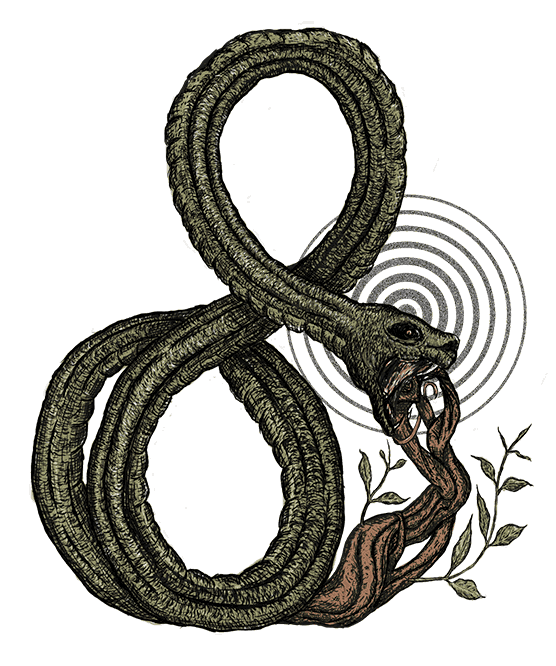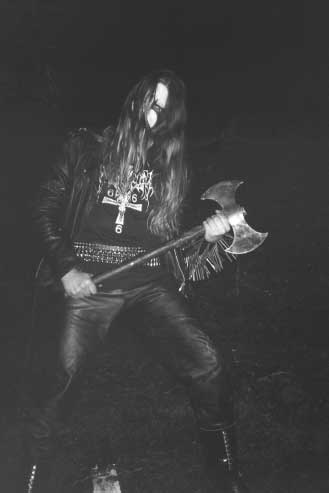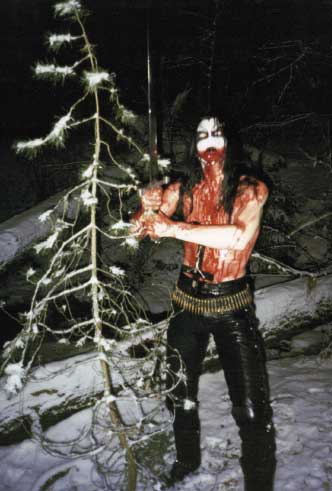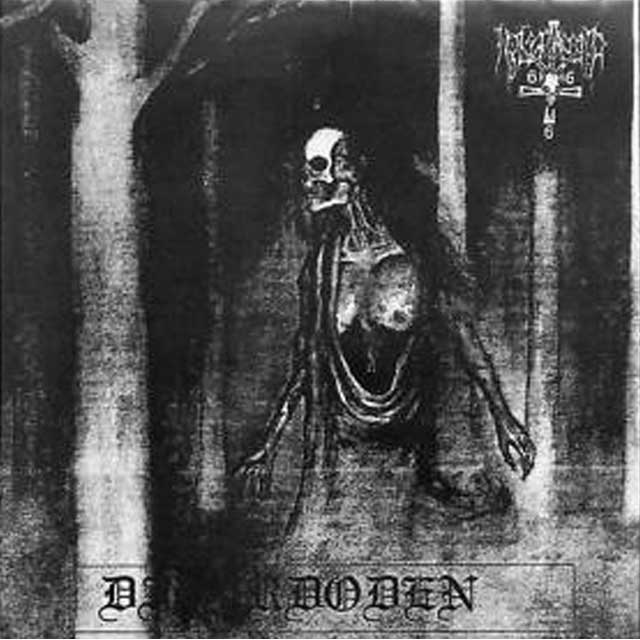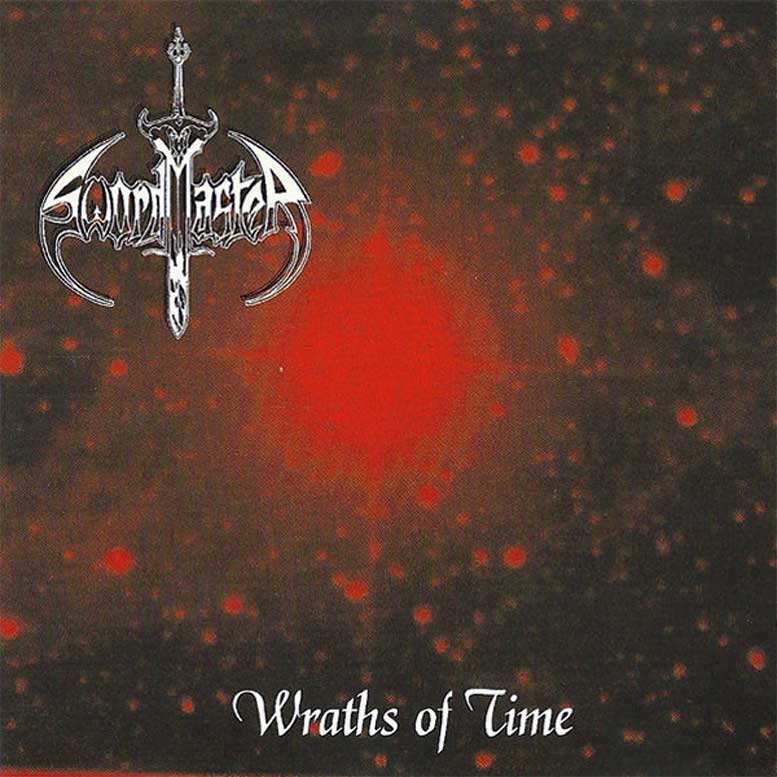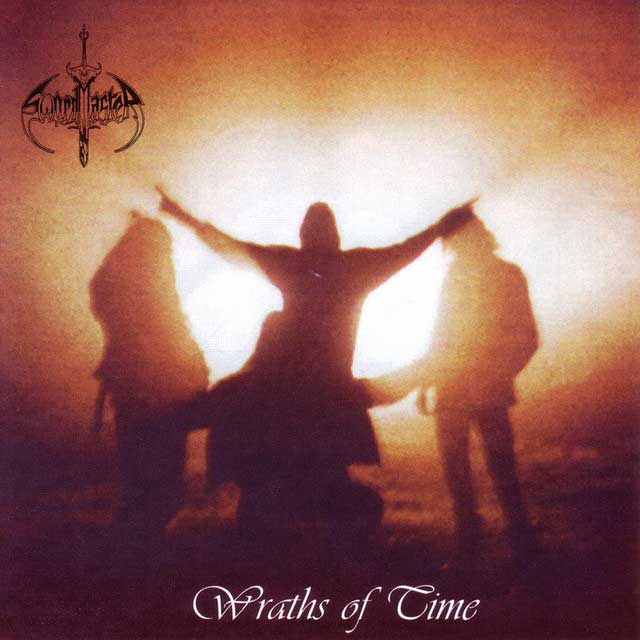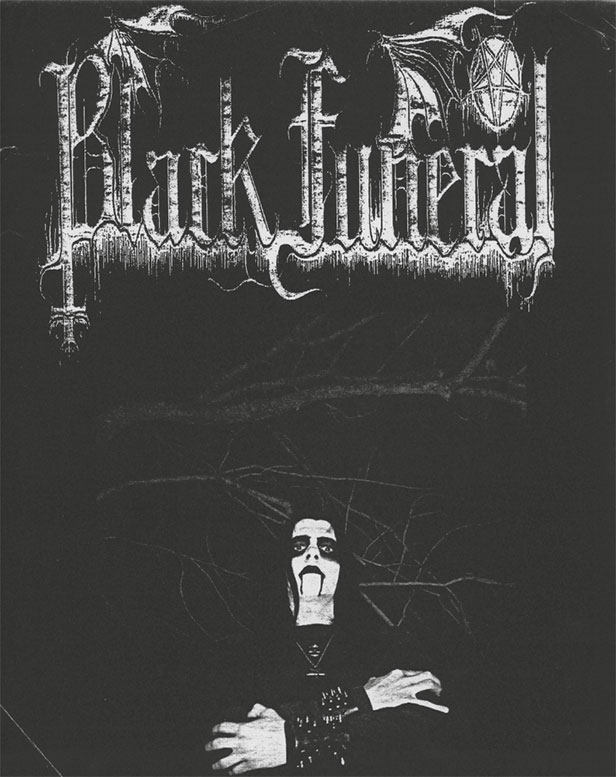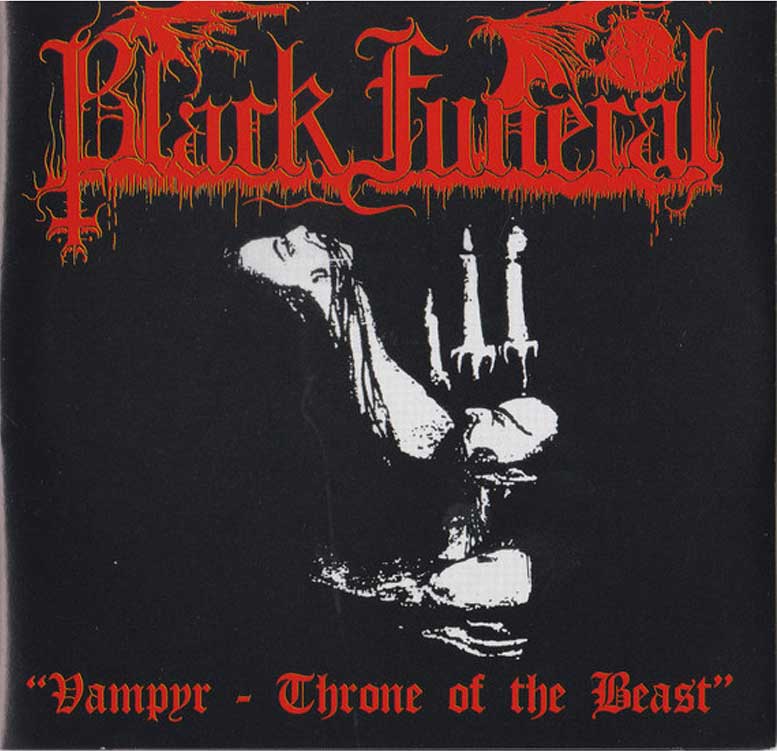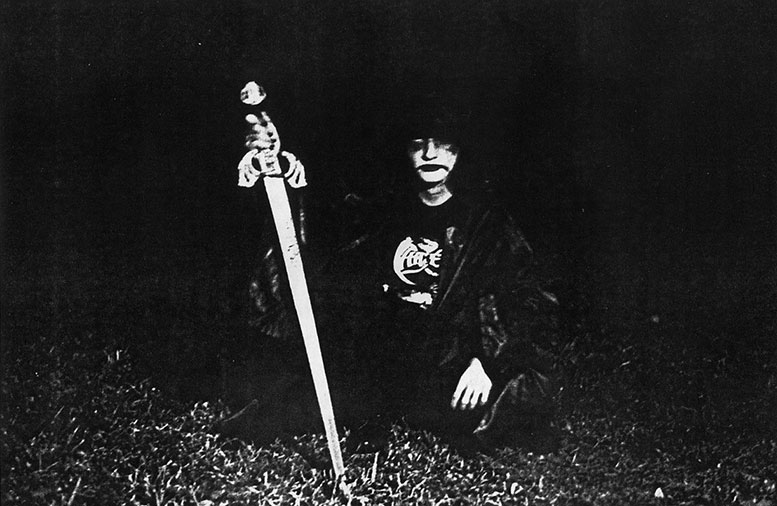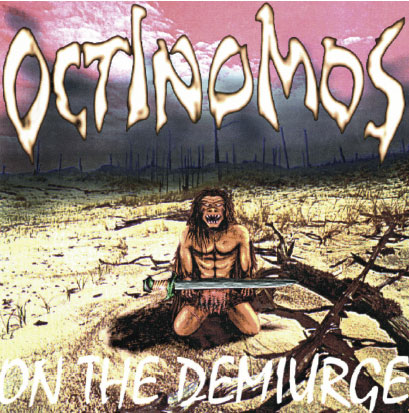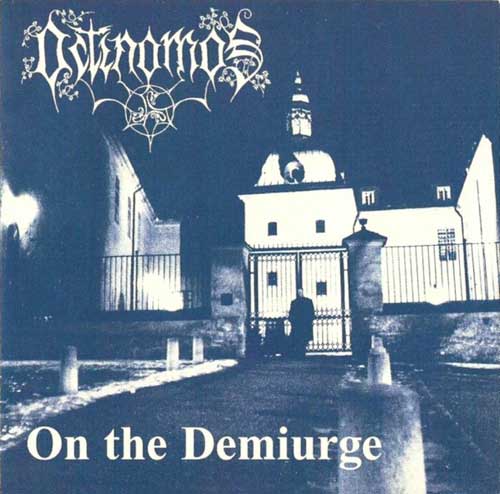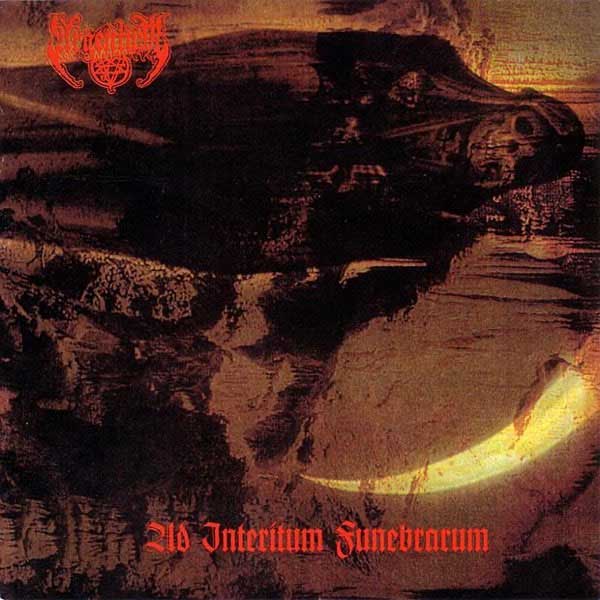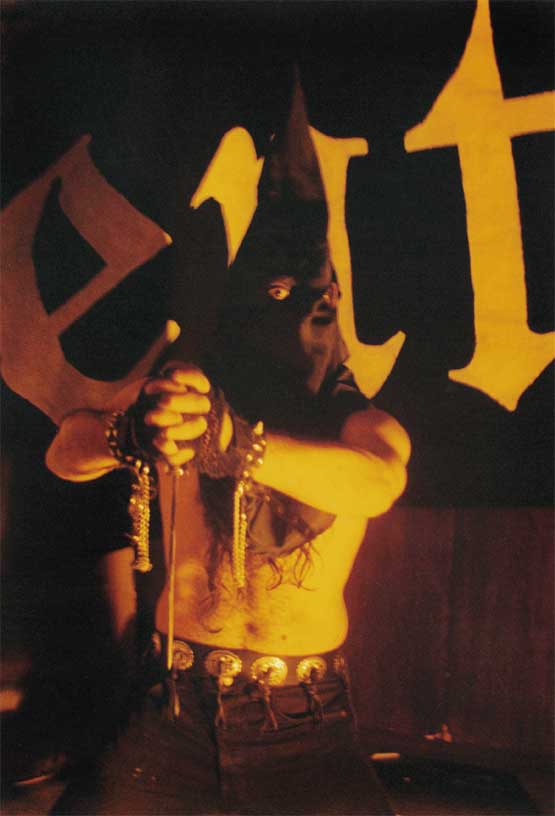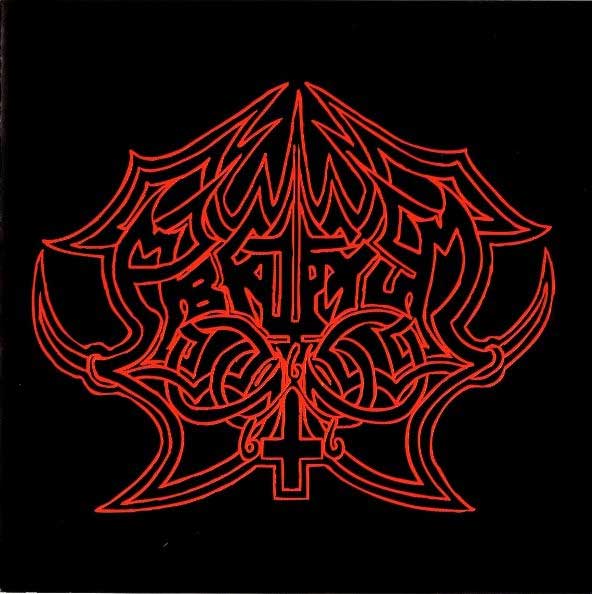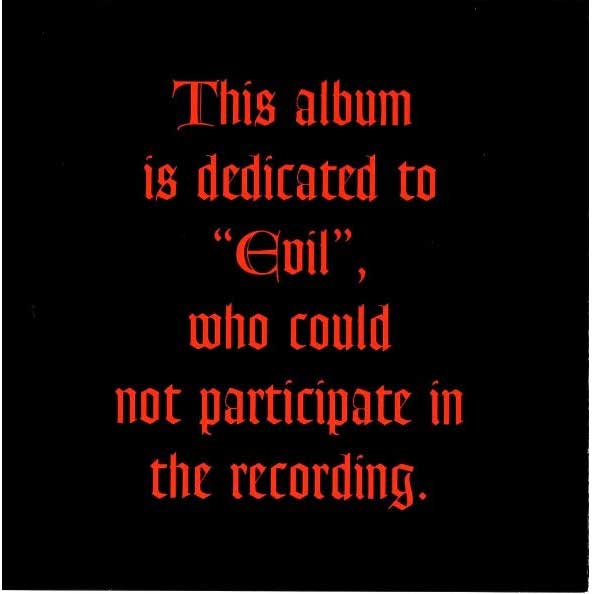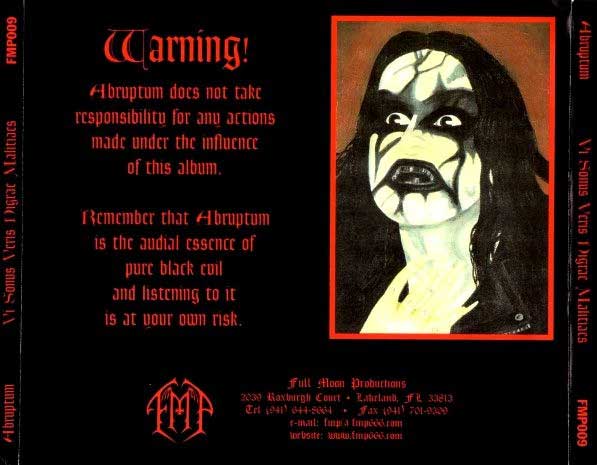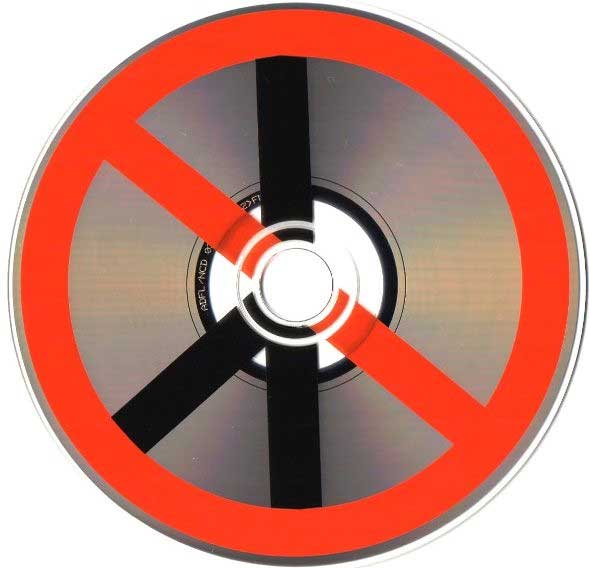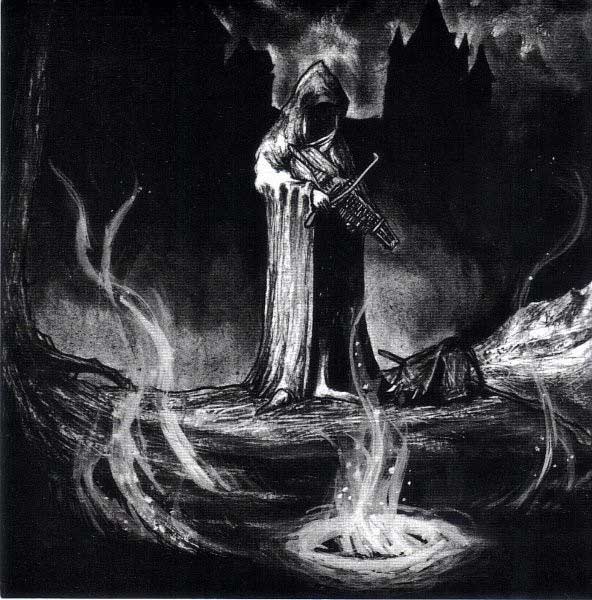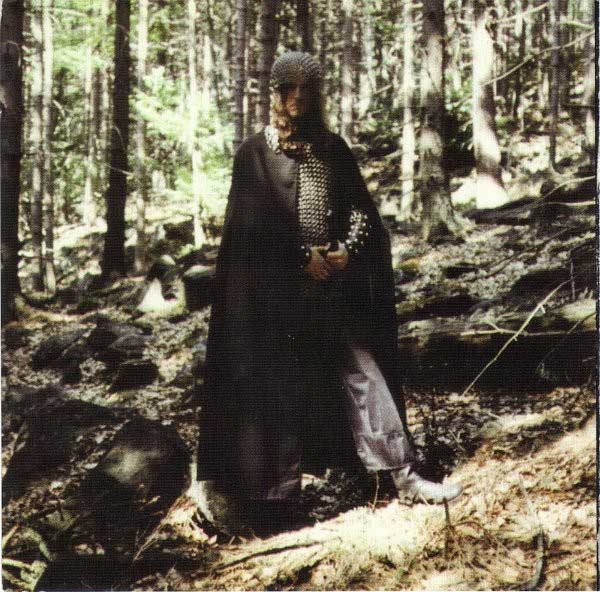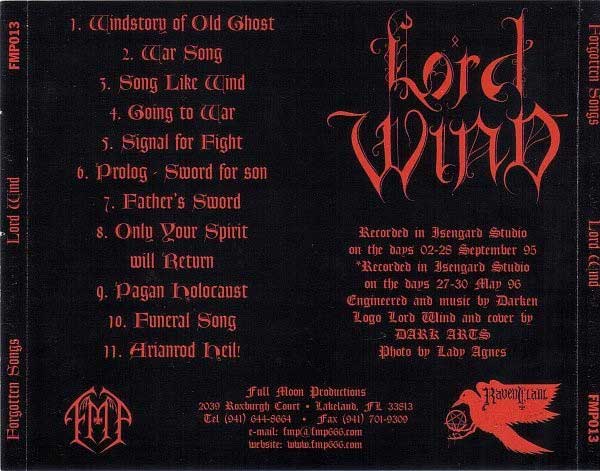Full Moon Productions IV
2025-08-27
by Niklas Göransson
Until 1995, Full Moon Productions had been a gateway for European fire. This changed with Black Funeral’s Vampyr: Throne of the Beast – the label’s first American release, and the spark that proved US black metal could stand on its own terms.
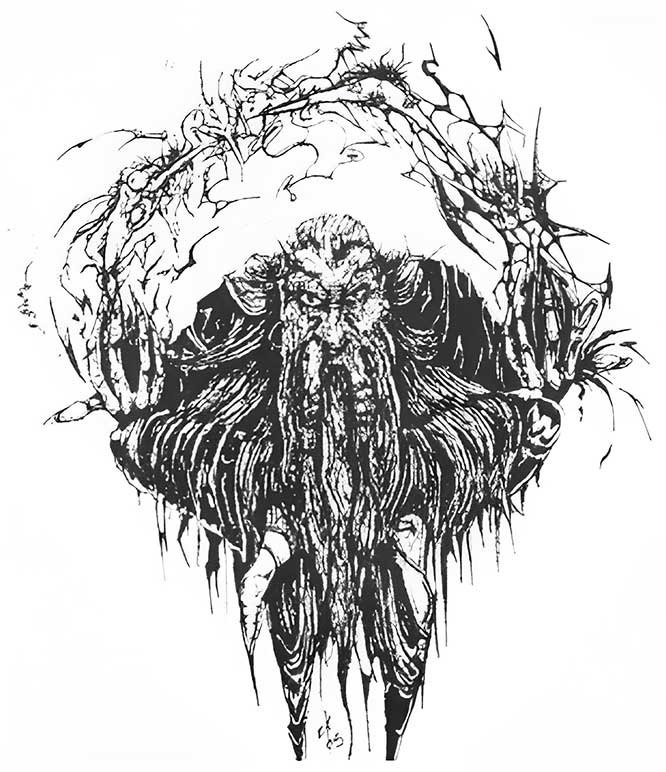
JON JAMSHID: I’ve always considered Full Moon Productions the first true American black metal label. Think about it – besides Necropolis, who else came close back then? Moribund still leaned towards death metal. Others tried jumping in later, but most didn’t last long.
By 1995, what began as a mail-order distro fuelled by the success of Petrified ‘Zine had grown into a full-fledged label – releasing albums, handling exclusive European imports, and trading with elite outfits like Osmose and No Colours. The first F.M.P. CD, HADES’ “…Again Shall Be”, drew critical praise and secured overseas distribution.
That March, “Digerdöden”, a seven-inch by Swedish black metal duo NÅSTROND, became Jon’s first collaboration with another US label.
JON: I received a NÅSTROND flyer covered in blood and figured these guys had to be pretty extreme, so I wrote to them. That led to me reviewing their “From a Black Funeral Coffin” demo in Petrified #3. Around then, my friend Jason started Freezing Records.
Freezing Records was an underground label founded by the guitarist and vocalist of Illinois-based LORD OF DEPRESSION.
JON: The thing is, Jason never followed through, so I released it myself. “Digerdöden” sounded raw as hell – really pushed the envelope. Some complained about the production, but I loved it. Unfortunately, while the artwork NÅSTROND sent was fucking killer, the finished EP looked awful.
Label owners often speak reverently about holding their first vinyl release. In Jon’s case, however, it sounds anticlimactic.
JON: The pressing quality was fucking terrible, and they didn’t even print enough sleeves. We ordered a thousand copies but only got about seven hundred covers – and those looked like total dog shit. So, I sold what I could and boxed up the remaining vinyl.
JON: Jon Nödtveidt (DISSECTION) and I connected through tape trading. At some point, he mentioned his younger brother’s band, SWORDMASTER, and asked if I’d be interested. After hearing their demo, I said yes. It reminded me of DISSECTION, but by the time they recorded the EP for F.M.P., their sound had changed.
All one thousand copies of FMP004, SWORDMASTER’s 1995 “Wraths of Time” mini-CD, sold out immediately. A second pressing, including a vinyl edition, followed later that year.
JON: The first cover was kind of space-themed – red and black, if I remember right. Before the second run, Emil told me he hated the original artwork and sent a photo instead. That version sold in the thousands as well, including the vinyl. Did you like it?
Sure, that mini-CD was good – the perfect balance of melody and violence.
JON: That’s what it came down to: “Wraths of Time” had a blend of elements that just worked. It flowed effortlessly, easy to get into. The NÅSTROND EP, by contrast, is harsh as hell. “Digerdöden” demands a certain mindset – you’ve gotta be deeply into raw, abrasive metal to fully appreciate it.
I personally prefer NÅSTROND, but I imagine “Wraths of Time” – especially with the updated cover – was much easier to promote.
JON: Precisely. SWORDMASTER’s sound hit just right, and they had a very marketable image. Emil didn’t have the typical black metal mindset – none of this ‘fuck promotion’ attitude. He was just genuinely into metal, which made them easy to work with.
Did you have a contract, or was it more of a handshake deal?
JON: I signed SWORDMASTER; F.M.P. was set to release their full-length. But while they were in the studio, Emil told me Osmose had shown interest and asked if I’d be okay with them switching labels. I tore up the contract and told him to go for it.
From a commercial standpoint, this was another case where Jon’s business degree should’ve gone up in flames. Contracts partly exist to protect labels from pouring time and money into promotion, only for bands to jump ship once momentum builds.
JON: Remember, F.M.P. was never about growing big; I wanted to discover unique bands, release underground music, and build something meaningful from scratch. So, when Emil said a bigger label had come calling, I felt he’d earned that chance. We were friends, and I respected his decision.
FMP005, BLACK FUNERAL’s “Vampyr: Throne of the Beast” marked Full Moon Productions’ first American release. Until then, Jon had worked solely with European bands.
JON: Initially, I hesitated. The American black metal scene felt years behind, so when BLACK FUNERAL came along, I worried people would write them off as latecomers or second-rate. What I didn’t realise was how big of a following they already had in the US.
All previous F.M.P. titles – HADES, ALGAION, VLAD TEPES – sold far better in Europe. “Vampyr…” broke that pattern, becoming the first to move more copies stateside than overseas.
Part of BLACK FUNERAL’s domestic notoriety can be traced to a Pit Magazine interview with frontman Michael Ford. His ‘extreme encouragements of murder’ – as Ford himself put it in Bardo Methodology #4 – drew the attention of the Indiana Attorney General, forcing a brief hiatus from media appearances.
JON: Actually, come to think about it, I’m pretty sure I set up Mike’s Pit feature. I used to advertise in their magazine and would always insist: ‘If we’re buying ad space, our bands deserve interviews or at least reviews.’ So yeah, that one was definitely arranged by me.
Do you think the interview boosted sales?
JON: Definitely. You know how it is: black metal is as much about the underlying concepts as the music itself. Imagery matters. How the members look, what they say in interviews – it all carries weight. Or at least it did back then. The crazier and more outrageous the statements, the more attention you got.
Did you know Michael Ford personally?
JON: A bit. Definitely a peculiar character – interesting guy, no doubt. What stood out about Mike was that he had a clear and consistent ideology. While the actual ideas were extreme, I always found him intelligent, entertaining, and genuinely engaging to talk to.
In August 1993, Varg Vikernes self-released BURZUM’s second album, “Det som engang var”, through Cymophane Records. That same month, he was arrested for murder, arson, and possession of explosives. After his incarceration, Vikernes floated the idea of reissuing the album via Full Moon Productions. But then BURZUM announced a deal with Misanthropy Records, a UK label founded by German national Tiziana Stupia.
JON: Not gonna lie, it really pissed me off. Tiziana wasn’t even into black metal; suddenly, she starts a label and signs fucking BURZUM? It felt like a slap in the face. Instead of standing by someone who’d known and supported him for years, Grishnackh (Vikernes) partnered with this woman he barely knew. That just struck me as… fucking weird.
In April 1994, BURZUM’s third album, “Hvis lyset tar oss”, became Misanthropy’s debut release. A reissue of “Det som engang var” followed that October.
JON: Grishnackh gave me her contact info and told me to get in touch. She said, ‘Listen, you need to stop making BURZUM merchandise. From now on, everything goes through Misanthropy. We’re handling all back stock – so F.M.P. is no longer authorised to sell anything.’
In a 2000 Mourning the Ancient interview, Jon recalled that Tiziana disliked how F.M.P. promoted BURZUM – focusing more on its transgressive elements than the music.
JON: Yeah, she told me that straight up. Tiziana had been trying to shift BURZUM’s image into a different, more commercially acceptable direction, so those swastika shirts really pissed her off <laughs>. But Grishnackh never told me to stop – in fact, he explicitly said, ‘Keep making them.’
With Varg in prison, I assume all communication was by letter?
JON: Correct. I was also in regular contact with his mother – I used to send shirts to her house and would occasionally call to verify addresses. Anyway, Grishnackh basically told me, ‘Ignore Misanthropy. Tiziana doesn’t have rights to the early material, and I won’t stop you.’ So, I kept printing official BURZUM merch well into the early 2000s.
In 1996, F.M.P. reissued “On the Demiurge” by OCTINOMOS, a black metal solo project from PUISSANCE’s Fredrik Söderlund. The album had first appeared on Infortunium Records, a short-lived Swedish label run by Henry Möller – then PUISSANCE, later ARDITI – and Mårten Björkman of ALGAION.
JON: Mårten sent me a copy, and I gave it a listen. To be honest, I felt somewhat dubious. As a label manager, I want to discover bands myself – I like tracking them down, making the call. But with OCTINOMOS, I was just handed the masters and asked to put it out. I wasn’t crazy about the intended cover either.
For good reason – it’s ghastly. I have the one with the bluish cover.
JON: Yeah, Mårten eventually sent over a different version; I think it was a black-and-white photo of Fredrik. Later, we did the final pressing with a blue-toned cover. In the end, it only had two runs – probably around 2,000 copies total.
FMP008, “Ad Interitum Funebrarum” – the debut album by Mexican black/doom act ARGENTUM, released in May 1996 – is one Jon has often called among the most underrated of its time. Great record. For some reason, it reminds me a bit of early MOONSPELL.
JON: Truly unique music. If you look at what else came out around then, very few bands offered anything remotely similar. ARGENTUM was experimental, steeped in occultism, and stood apart. Honestly, I see it as one of the stronger F.M.P. titles. That said, it didn’t sell well.
I assume ARGENTUM would’ve drawn far more attention had they been from Norway?
JON: A hundred percent. That’s exactly it. Hard to explain now, but back then, people mostly cared about European or American bands. So, when I released something from Mexico, a big part of my customer base didn’t even give it a shot. But over time, “Ad Interitum Funebrarum” gained a cult following. Word spread, and it eventually sold out.
On January 24, 1995, Full Moon Productions officially signed Swedish black metal duo ABRUPTUM, who’d been left without a label following the demise of Deathlike Silence.
JON: ABRUPTUM showed just how far this music could go in terms of extremity. I mean, who else was doing anything remotely similar – recording actual mutilation, pain, and chaos? The only comparison I can think of might be GG Allin, and even that’s a stretch.
Far removed from conventional songwriting, ABRUPTUM’s early work was the sound of ritualised disintegration: improvised sessions fuelled by psychological torment and physical self-harm.
According to Swedish producer Dan Swanö, who recorded ABRUPTUM’s “Obscuritatem Advoco Amplectère Me”, Tony ‘IT’ Särkää and Morgan ‘Evil’ Håkansson created a nightmarish atmosphere with bloodletting and violence – all set to a soundtrack of droning guitars, deranged shrieks, and blunt-force percussion.
JON: At first, my contact with Tony was strictly ideological; we were corresponding about extreme metal and Satanism, nothing business-related. But after Deathlike Silence followed Euronymous to the grave, Tony asked if I’d release ABRUPTUM on F.M.P.
Once they’d struck a deal, a new ABRUPTUM album was recorded at Abyss Studios in late 1995.
JON: Originally, the release was also supposed to feature Morgan Håkansson from MARDUK – but in the end, I think Tony recorded this one alone. That’s how I remember it, anyway; it’s been a long time. Do you know?
IT did indeed record “Vi Sonus Veris Nigrae Malitiaes” without Morgan Håkansson. Instead, former DARK FUNERAL guitarist Blackmoon came along as company. It was late one drunken night during this trip that these two, along with studio producer Peter Tägtgren from HYPOCRISY, founded their black metal project WAR.
JON: Tony wanted the CD completely black on both sides. So, I went hunting for a pressing plant with such capabilities, to no avail. This delayed things for several months because I spent all that time trying to convince him it wasn’t possible. Eventually, we settled on a regular CD.
Full Moon Productions released FMP009 – “Vi Sonus Veris Nigrae Malitiaes”, ABRUPTUM’s third full-length – in early 1996.
JON: The ABRUPTUM album did really well for us, mainly due to them being remembered as a D.S.P. band; that alone made it a big deal. Think about it: after the label folded, who was putting out new material from the Deathlike Silence roster? Pretty much no one.
How did your customers react?
JON: Well, some folks had no idea who ABRUPTUM were; I remember quite a few bought it expecting melodic Swedish black metal <laughs>. Then they’d play it and go, ‘What the fuck is this noise?’ There was something weirdly gratifying about imagining the unsuspecting listener hearing what sounds like a person torturing himself.
That same year, in 1996, Jon launched a short-lived side label called Raven Claw.
JON: The idea was to keep Full Moon strictly black metal, while Raven Claw would handle everything beyond that realm – dark ambient, noise, black/thrash, whatever didn’t quite fit the F.M.P. mould. I’d been in touch with Rob Darken since ‘93; when he offered me “Forgotten Songs”, I accepted immediately.
“Forgotten Songs” by LORD WIND – the medieval-ambient side project of GRAVELAND’s Rob Darken – became the first and only release on Raven Claw.
JON: LORD WIND did great – but after that release, I wasn’t sure where to take the label. People knew me as a black metal guy, so the question became: do I really wanna split my focus and start releasing stuff that might confuse what I’d built? In the end, I decided against it, figuring I’d be better off pouring everything into F.M.P.
log in to keep reading
The second half of this article is reserved for subscribers of the Bardo Methodology online archive. To keep reading, sign up or log in below.
